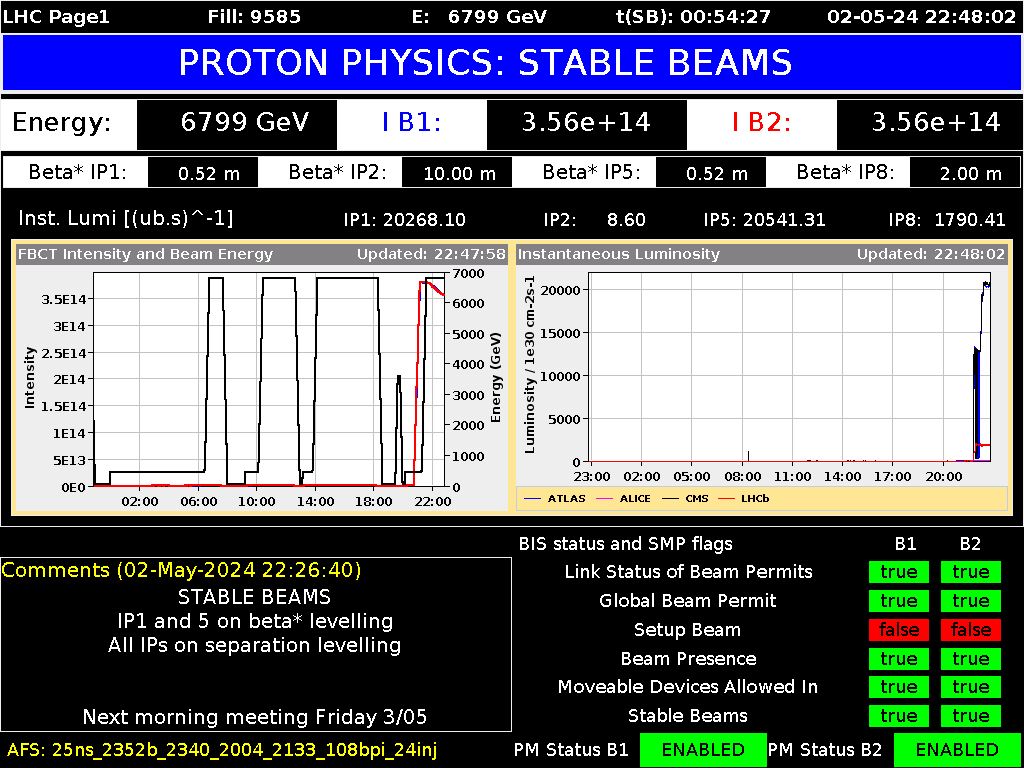dyqik wrote: Wed Aug 03, 2022 11:43 am
IvanV wrote: Wed Aug 03, 2022 11:21 am
dyqik wrote: Wed Aug 03, 2022 10:27 am
This statement is utterly wrong.
Anthropic arguments are just pointing out that for us to observe the universe, the universe must be capable of supporting life of the type that can observe the universe.
First, the term "observe" is not well defined. We do not reliably know how to recognise "observation". At least in a philosophical sense. That is related to our philosophical agonising over issues like consciousness and free will. But maybe you have in mind some particular physical notion of observation. For example, maybe some quantum mechanical wave function reduction type of thing - Schrodinger's Cat is only dead if it is observed to be dead. But I do not think that we have really got to the bottom of that. So I am not convinced that "observation" is a restriction.
Second, even if you can make precise what "observation" is, we have absolutely no idea what potential "observers" might exist in alternative courses of events for our own universe, let alone what might exist in alternatives with different laws of physics, or even what is the range of "alternatives" it is valid to consider.
You've snipped out the substantive part of my post which addresses this.
I thought I was addressing it. Let me point out more specifically how my two objections relate to what you wrote. As I said, I think either of my two objections suffice, but I mention both.
For complex life capable of forming the concept of "universe" to evolve,
This phrase relates to my first objection. I think it is the only place where you address it.
Your anthropic concept was based on "observe". You are assuming here, it would appear, that "observe" require complex life. I do not think that is clear. We need a precise definition of "observe" for these purposes, and I do not think we have one. It is far from clear to me that complex life is needed. Suppose earth has the only complex life in the universe. What does that mean for the first 10bn years of our universe? The earth was far from inevitable, as far as we can tell.
...there has to be stable local structures capable of evolving in time, i.e. that can store and process information. (There also has to be a concept of time for that processing to occur in, which implies conservation of energy). This requires that particles exist in a form that can be gathered into stable assemblies and configurations, i.e. that are not forced apart rapidly by electromagnetic charges.
Now we move to my second objection. I would suggest that these arguments are based on assumption that the only kinds of stable structures are analogous to the kinds of things we already know about, the kinds of particles and atoms we know about. The last sentence appears to reveal that assumption. As I mentioned previously, as we explored the solar system and the universe, we kept on finding stuff we never anticipated. And that's with the laws of physics we are familiar with. So I really don't have much confidence in the ability of physics to predict stuff beyond sufficiently close analogy with their known experience.
People explore variations on our physical laws all the time. Most variations do not allow stable matter or other structures to form, and thus cannot store information.
So we make a small adjustment to the known laws or constants and known matter falls apart. There could be totally different kinds of stable, information-storing structures with different laws of physics, things beyond analogy with what we know about in our present universe, arrangements we wouldn't even call matter. You do try and predict my objection by saying "other structures". I don't think we know how to reliably exclude such possibilities far beyond our present imaginings. And this is only my second objection of the two.
Anthropic arguments are also used not only in relation to alternative laws of physics, they are also used in relation to alternative courses of events within our present laws of physics. For example, had the moon been a rather different size, it would have had a major effect on the potential for evolution of life as we know it on the earth. Even within our present laws of physics, we really have very little idea whether complex life is common in our universe, or unique to Earth. Whether our chemistry is the only kind of complex life, or if there could be quite different complex life that could evolve with a rather different chemistry in different conditions. Such is our very limited ability to work out what possibilities might exist within a set of laws of physics, that we have great difficulty doing it even with the laws of physics we know, where we have some data to go on. As for alternative laws of physics where we have no data to go on, well you'd have to be remarkably confident with our ability to understand the full range of their potential implications to say that you can really exclude everything. We really don't understand well enough how physics works to do that.


